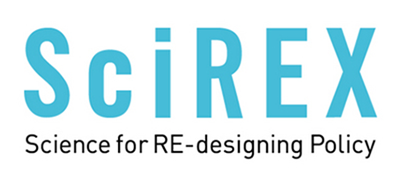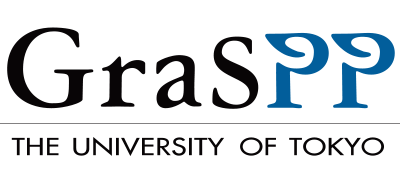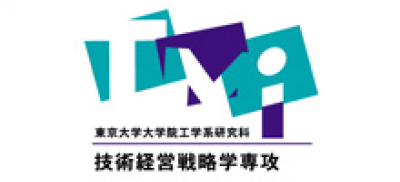Feeding Research Results into Policy Formulation
Research Developments and Future Outlook

The Science, Technology and Innovation Governance (STIG) Program has two main areas of focus. One is education aimed at fostering the knowledge and evidence-building methods necessary to formulate and implement science and technology innovation (STI) policies. The other is to promote research in this field and to feed the results into policy formulation. Below are examples of our research track record, as well as our future outlook and areas of focus.
1.Promotion of Integrated Education and Research
—— Research at SciREX and STIG
The Science for REdesigning Science, Technology and Innovation Policy (SciREX) Program was launched by the Ministry of Education, Culture, Sports, Science and Technology (MEXT) in 2011. Its aim is to combine research on the science of policymaking with educational efforts in STI policy, towards the realization of policymaking based on objective evidence.
One of the objectives of SciREX is the development of educational center, and in this regard, the University of Tokyo has enjoyed considerable success in fostering specialists through the STIG Program. On the other hand, the SciREX Program as a whole had faced challenges in promoting research in this field and feeding new evidence, policy formation processes, and other knowledge into policymaking.
As an initial step towards improving this situation, a joint policymaker-researcher framework was launched and research projects based on “priority issues” were implemented for a two-year period from 2016. Under this framework, each participating university selected the field and themes it would cover from the “priority issues” set out in the SciREX Program Basic Policy (https://scirex.grips.ac.jp/newsletter/1-2016-5/03.html), and researchers collaborated with policymakers in carrying out pertinent research projects. The framework was essentially researcher-driven in the sense that most problems and research topics were initially chosen by the researchers. Specific case studies are discussed below.
In contrast, SciREX launched the Coevolution Program in FY2019 (https://scirex.grips.ac.jp/project/list.html) as a new practical approach to evidence-based policymaking (EBPM). The problem-setting for these projects was done by researchers and policymakers together, rather than being driven solely by the academic interests of researchers or simply being commissioned by government officials. This placed an emphasis on collaboration between government and academia from the earliest stages. Examples of such research projects can be found below.



